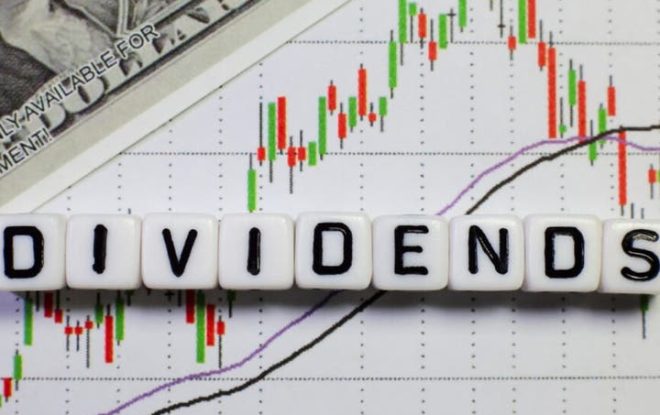Dollar General Stock Crashes. Should Investors Buy the Dip or Stay Away?
Dollar General (NYSE: DG) shares lost nearly a third of their value after the discount retailer issued weak guidance with its fiscal Q2 results on Aug. 29. The plunge sent the stock to its lowest levels in more than five years.
Let’s examine the company’s earnings report and guidance and see if this is an opportunity to buy the shares on the dip, or if investors should stay away.
Lower-income consumers are under pressure
For its fiscal second quarter (ended Aug. 2), Dollar General saw its results fall short of expectations. Revenue rose 4% year over year to $10.2 billion, but its earnings per share (EPS) sank 20% to $1.70. That was below the analyst consensus of $10.4 billion in revenue and adjusted EPS of $1.79.
Same-store sales edged up 0.5% but were below the company’s expectations. The gains were driven by a 1% increase in traffic, although the average checkout ticket declined by 0.5%. Growth came entirely from the consumable category, as the seasonal home and apparel categories saw declines. Consumables are items that shoppers use up (and buy again) on a regular basis.
Gross margin decreased 112 basis points to 30%. The company said that shrink continued to remain a “significant” headwind, although it is making some progress reducing it. Shrink is the amount of merchandise that gets lost, damaged, spoiled, stolen, or just generally can’t be sold.
When looking at a struggling retailer, it is always good to look at inventory levels, as high inventories can lead to more markdowns and even more pressure down the line. On that front, the company’s merchandise inventory fell 7% to $7 billion and was down 11% on a per-store basis. Nonconsumable inventory decreased 13% and was 17% lower on a per-store basis.
Looking ahead, Dollar General lowered its full-year guidance. It now expects revenue to grow between 4.7% and 5.3%, with same-store sales increasing between 1% and 1.6%. That’s down from a prior outlook of revenue growth of 6% to 6.7% on comparable-store growth of 2% to 2.7%
Meanwhile, it lowered its full-year EPS forecast to a range of $5.50 to $6.20, down from previous guidance of between $6.80 and $7.55. It said that its gross margin will feel some pressure due to increased promotional markdown activity.
|
Metric |
Old Guidance |
New Guidance |
|---|---|---|
|
Revenue growth |
6% to 6.7% |
4.7% to 5.3% |
|
Same-store sales growth |
2% to 2.7% |
1% to 1.6% |
|
Earning per share |
$6.80 to $7.55 |
$5.50 to $6.20 |
The company said that its core base of lower-income shoppers was feeling worse off than they were just six months ago, as higher prices, interest rates, and unemployment weigh on the group. About 60% of Dollar General’s customers have a household income of less than $35,000 a year. It noted that in surveys, many of its customers say they have had to turn to credit card debt, with about 30% maxing out one card.
Should investors buy the dip or stay away?
Dollar General’s core customers have been under a lot of pressure in recent years due to inflation, and even with inflation starting to moderate, these past inflationary pressures are catching up to lower-income households that have taken on credit card debt to just get by. High inflation is pressuring lower-income families much more than the middle class. This can be seen in the comparatively much stronger Q2 results posted by Walmart and Target.
At the same time, the retailer needs its same-store sales to grow over 3% in order for it to leverage its expenses and grow its earnings. Its latest guidance reduction is now well below that 3% mark. That means that its earnings are likely to be pressured until it manages to reaccelerate same-store sales growth. Importantly, though, its inventory does look to be in pretty good shape.
From a valuation perspective, the company now trades at a forward price-to-earnings (P/E) ratio of only about 12 based on analyst estimates for fiscal year 2025 (ending January 2026). That’s inexpensive and well below the valuation it has traded at over the past few years.
Dollar General has been thrown in the bargain bin after its earnings report, and the retailer should eventually be able to climb out. However, that is not going to happen overnight as it will need to see both a better economy and more normal inflation. About 80% of its business is consumables, so its same-store sales benefit over time from moderately rising consumable prices.
I’d recommend taking a starter position and then looking to buy more on any additional weakness in the stock to take advantage of long-term strength.
Should you invest $1,000 in Dollar General right now?
Before you buy stock in Dollar General, consider this:
The Motley Fool Stock Advisor analyst team just identified what they believe are the 10 best stocks for investors to buy now… and Dollar General wasn’t one of them. The 10 stocks that made the cut could produce monster returns in the coming years.
Consider when Nvidia made this list on April 15, 2005… if you invested $1,000 at the time of our recommendation, you’d have $731,449!*
Stock Advisor provides investors with an easy-to-follow blueprint for success, including guidance on building a portfolio, regular updates from analysts, and two new stock picks each month. The Stock Advisor service has more than quadrupled the return of S&P 500 since 2002*.
*Stock Advisor returns as of September 3, 2024
Geoffrey Seiler has no position in any of the stocks mentioned. The Motley Fool has positions in and recommends Target and Walmart. The Motley Fool has a disclosure policy.
Dollar General Stock Crashes. Should Investors Buy the Dip or Stay Away? was originally published by The Motley Fool





Leave a Reply